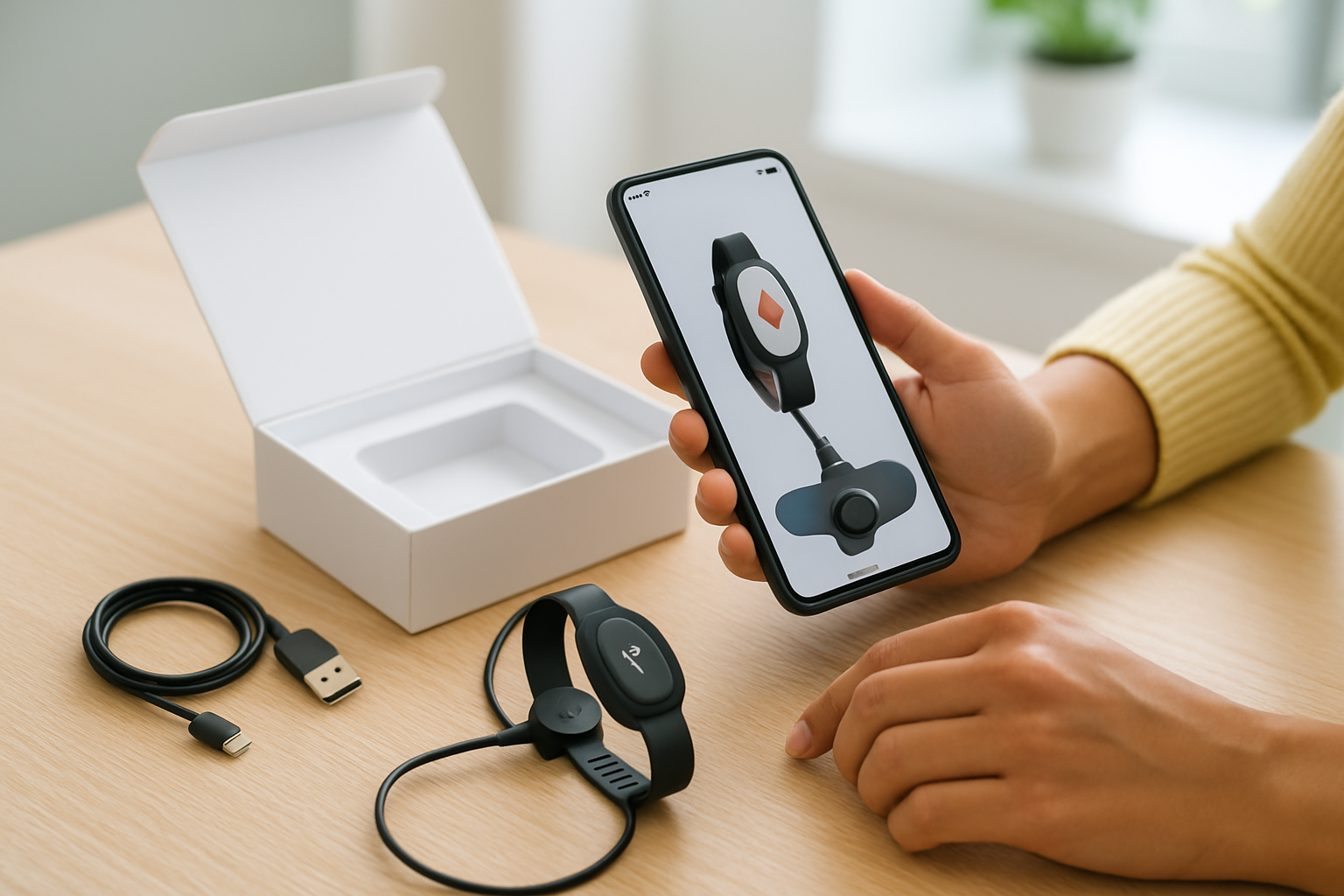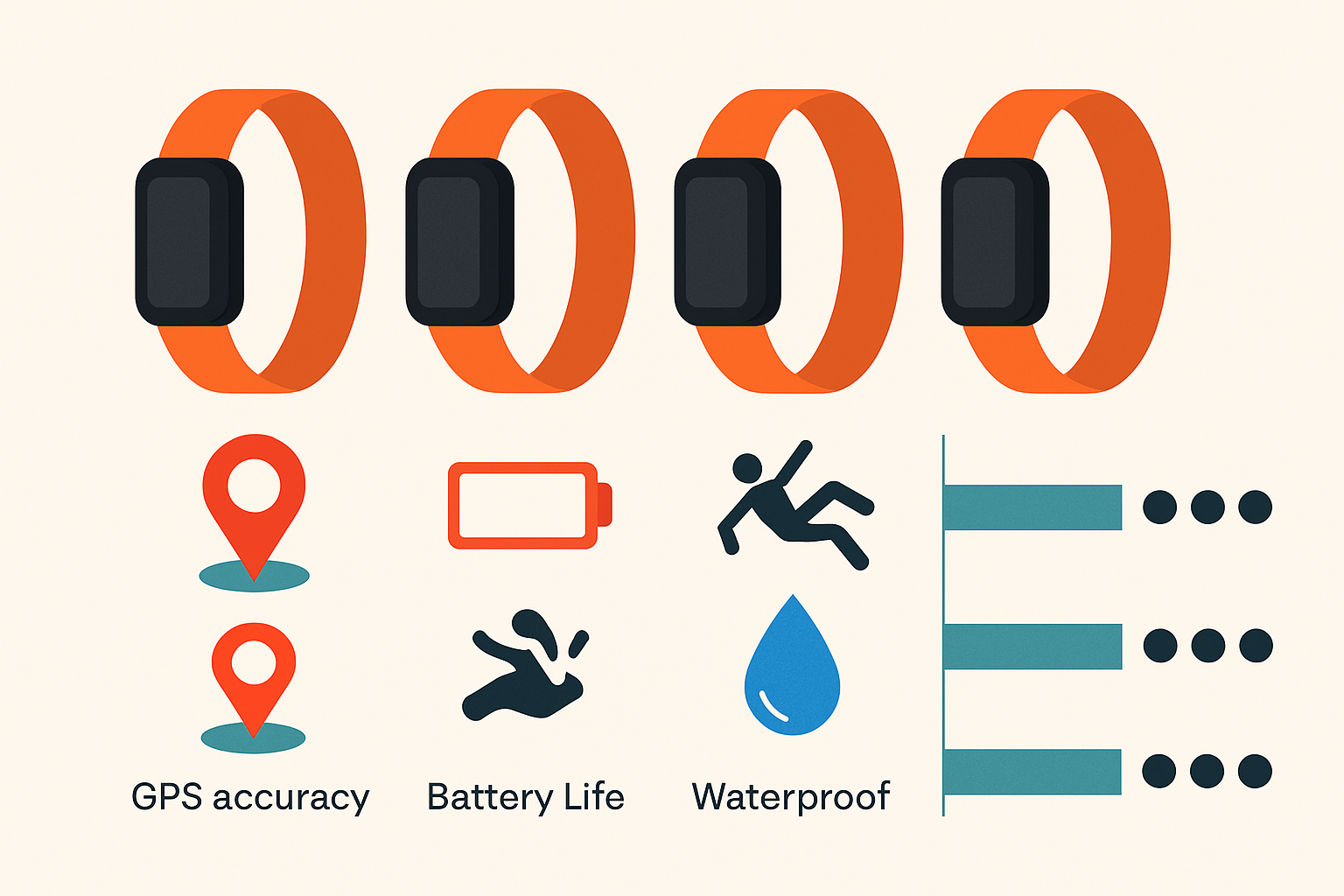How To Use Flare Alert Bracelet For Emergency Safety

This article unpacks how flare alert bracelets work and shows you how to use them like a pro when emergencies come knocking.
- Discover how a flare alert bracelet swoops in with instant emergency alerts and GPS tracking plus two-way communication to seriously up your safety game.
- Find out who stands to gain the most from these handy bracelets—think seniors or individuals managing chronic illnesses and anyone who loves a good outdoor adventure.
- Follow easy step-by-step setup instructions to have your bracelet ready the moment an emergency shows up.
- Pick up practical tips on maintaining and troubleshooting your device so it stays reliable day and night.
A flare alert bracelet is a handy wearable safety device that jumps into action to quickly alert emergency services and your loved ones when things get serious. It offers a comforting sense of security not just for the person wearing it but also for everyone who cares about them.
What Exactly Does a Flare Alert Bracelet Do? Let us Break It Down
A flare alert bracelet is a nifty wearable gadget designed with emergency alert tech built in. It delivers instant notifications, tracks your GPS location, senses falls and supports two-way communication.
- Sends urgent alerts immediately to designated contacts or emergency services so help is never far when it counts
- Keeps tabs on the wearer’s location in real time using built-in GPS for peace of mind without lifting a finger
- Automatically detects falls and sends alerts right away with no need to fumble for buttons in a tough spot
- Supports two-way voice communication letting the wearer reach out and chat directly with help, keeping things personal and quick
Who Could Really Benefit from Wearing a Flare Alert Bracelet
Flare alert bracelets tend to be a real lifesaver for seniors and individuals managing chronic conditions. They also help kids, outdoor lovers, and caregivers who need quick access in an emergency and want to ramp up safety.
Getting Your Flare Alert Bracelet Ready for Those Just-In-Case Moments
Getting your flare alert bracelet ready is straightforward. Start by unboxing it and give it a full charge to make sure it has plenty of juice. Next, pair it with the app or system and add your emergency contacts.
Unpack the bracelet and lay out all the bits you need like the charger and instruction manual.
Give the device a full charge until the battery indicator flashes
This ensures it won’t bail on you when you need it.
Grab the companion app from your phone’s app store and create your user account. It’s straightforward, I promise.
Pop into your personal profile to add emergency contacts. Then send a quick test alert to make sure everything is connected as it should.

Setting up a flare alert bracelet with the companion app and charging the device.
How to Use Your Flare Alert Bracelet When Things Go Sideways
Don’t hesitate to activate your flare alert bracelet—getting help on the way quickly can make all the difference. Just press and hold the alert button until it sends out that important signal. If your bracelet happens to support two-way communication, take advantage of it to chat with responders.
- Press and hold the emergency button firmly without letting up until you hear the alert go off
- If your device has one, use the built-in speaker and microphone to talk directly with emergency contacts or responders—it can really make a difference
- Try to keep your cool and clearly share your location and a quick rundown of what is happening when they ask
Best Ways to Care for and Test Your Flare Alert Bracelet Tips That Actually Work
Keep your bracelet ticking along nicely by charging it regularly and updating its software when the time comes. Every now and then, give the alert system a quick test to make sure it’s still on the ball. Oh, and don’t forget to keep the device clean and dry—think of it as pampering your tiny tech companion.
Make sure to charge your flare alert bracelet at least once a week. This little routine really helps keep the battery healthy and ready for action when you need it most.
Give the emergency alert a spin once a month, just to be sure it stays connected and works seamlessly with your contacts.
Gently wipe down the bracelet’s exterior with a damp cloth but be cautious about submerging it unless it’s officially waterproof because no one wants an unexpected swim test.
Keep a casual eye on the companion app for updates and install them as soon as they pop up. This will keep things running smoothly and securely without any hiccups.
How to Tackle Those Pesky Issues with Flare Alert Bracelets
Users sometimes run into quirks like Bluetooth connection drops and pesky low battery alerts. They also experience false alarms that make you jump or syncing hiccups with the app.
- Make sure your phone's Bluetooth is on and the bracelet is close by. There is no point in trying to connect if they are far apart
- Double-check the companion app has the permissions it needs like location or notifications or it might act stubborn
- If things get hiccupy give both your bracelet and smartphone a quick restart. It’s surprising how often a reboot fixes hiccups
- If all else fails don’t hesitate to reach out to customer support because they’re usually helpful when the tech misbehaves
Other Handy Features to Keep an Eye Out for in a Flare Alert Bracelet
Modern flare alert bracelets come in a wide range of styles and features. You’ll typically find better GPS accuracy baked in, adjustable fall detection sensitivity to suit your lifestyle, longer battery life that won’t leave you hanging, water resistance for unexpected splashes and seamless compatibility with smart home systems or medical alert services.
| Brand/Model | GPS Accuracy | Fall Detection | Battery Life | Waterproof Level | Communication Options |
|---|---|---|---|---|---|
| FlareSafe 360 | High accuracy (around 5 meters) – pretty reliable for most outdoor adventures | Sensitivity can be tweaked to your liking | Keeps going for up to 7 days, so you won’t be charging every night | IP67 (water resistant, so no worries if you get caught in the rain) | Two-way voice and SOS alert – handy for those ‘just in case’ moments |
| Guardian Alert Pro | Moderate accuracy (around 10 meters), not perfect but gets the job done | Comes with a standard sensitivity setting out of the box | Runs up to 5 days, enough to get you through the week | IP65, which means it can handle splashes but don’t go swimming | SOS button and emergency calling included – simple, effective protection |
| SecureBand Elite | Very accurate (within about 3 meters), for when every meter counts | Enhanced sensitivity to catch falls without overreacting | Battery life lasts up to 10 days, barely needs a recharge | IP68 (fully waterproof, so feel free to take it on your next swim) | Two-way communication plus GPS for complete peace of mind |
| LifeLine Signal | Standard accuracy (about 15 meters), good enough for everyday use | Basic sensitivity, straightforward and no fuss | Up to 3 days of use, better if you’re a light user | IP54, which protects against dust and light splashes | SOS alert and location sharing – covers the essentials without complication |

Feature comparison chart of popular flare alert bracelets.
When It’s Time to Swap Out Your Flare Alert Bracelet
You’ll want to swap out your flare alert bracelet if its battery won’t hold a charge despite your best efforts. Also replace it if any physical damage affects its performance or water resistance. Change it if it no longer gets software updates or suddenly refuses to connect with your devices.





